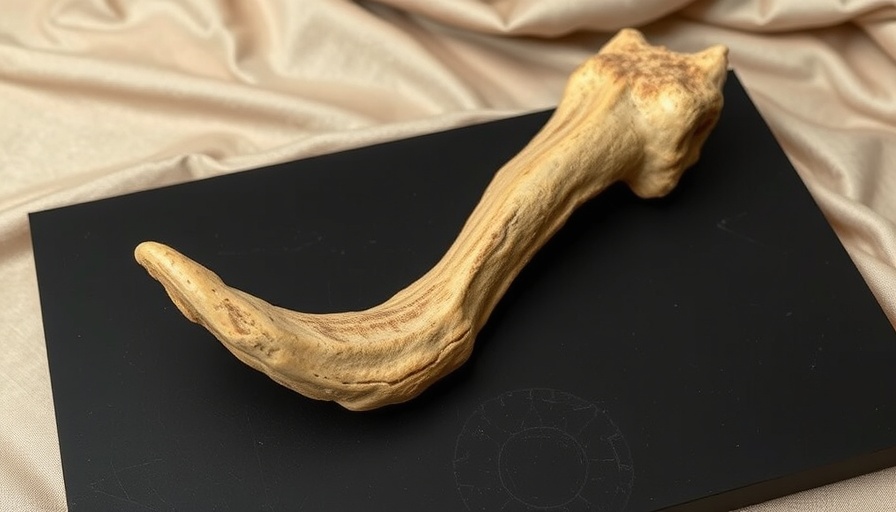
Discovering a Piece of Prehistoric History
In a remarkable twist of fate, paleontologists have stumbled upon a prehistoric camel fossil in Utah, uncovering a treasure that sheds light on the ancient past. The research team expected to date the fossil to a particular period, but what they found was astonishingly older, dating back to a time long before they had anticipated. This discovery not only reveals more about the evolutionary lineage of camels but also highlights the remarkable history that lies beneath our feet.
What Makes This Fossil Special?
This fossil represents more than just an extinct species; it's a window into an ecosystem that once thrived in our area. Camels are known for their adaptability, and learning about how they lived could provide insights into how animals respond to climate changes. Furthermore, understanding their age helps scientists piece together the timeline of life on Earth, giving us a glimpse into how environmental shifts shaped wildlife.
The Community Impact of such Discoveries
This discovery isn't just significant for researchers; it holds potential community benefits too. As word spreads about this fossil, it could spark interest in local events and programs focused on science and natural history. Museums and educational institutions might leverage this chance to engage the public, fostering a sense of pride and curiosity among residents.
What’s Next for Local Scientists?
The implication of this fossil discovery extends into future research endeavors. As studies continue, scientists will explore further excavations in the area, which could lead to even more significant findings. This emphasizes the importance of preserving our local environments and supporting science initiatives that encourage the exploration of our natural history.
In a time when communities crave connections to their surroundings, this prehistoric find serves as a reminder of the rich tapestry of life that has existed long before us and can inspire future generations to explore and appreciate their local heritage.
 Add Row
Add Row  Add
Add 




Write A Comment